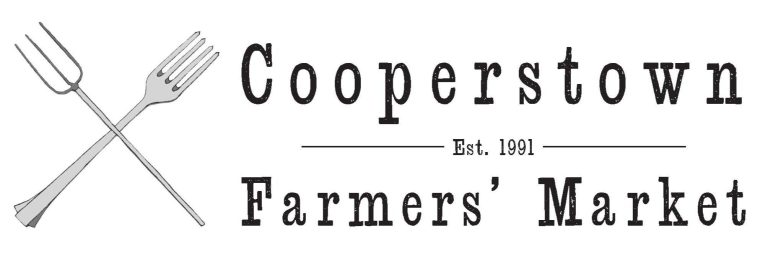Life Sketches by Terry Berkson
Bring Your Own Bag

I recently read an account of an American couple hitchhiking through France during the sixties. Motorists passed them by, giving them the finger (thumbs down) and calling out things like, “Yankee, go home!” I remember that time well. President Charles de Gaulle was in the process of kicking American troops that had been there since World War II out of France. It appeared to be an ungrateful act, given the help we gave to that country during the war. But at that time I was stationed in Germany and I observed how young American soldiers, lonely from being away from home, and ignorant of the manner and customs of the people whose country they were now occupying, could misbehave, could get into fights, could harass women and own the label of “the ugly American.”
In December of 1965, I and 1,400 other soldiers set sail on the USS Darby, the last troop ship ferrying our soldiers over to Germany. After that, the military used planes and an eight-day voyage was reduced to an eight-hour flight. During the ship crossing, there was little to do and we were shown a lot of frivolous movies. “The Yellow Rolls-Royce” was one of them. Looking back, I see that this would have been an excellent time to educate the new troops about the people whose land we were about to “invade.” There could have been something said, by way of a documentary, about being a representative of your country, to put your best foot forward and thus win the hearts and minds of our hosts. But the opportunity to get this across was lost and, instead, a lot of “bad boys” were unleashed in Germany as well as in France. I don’t mean the majority. It just took a few to spoil it for the rest of us. German nationals called my base in Ludwigsburg, “Gangster Barracks.” I’m sure the same dynamics were afoot in France.
I knew they didn’t like American soldiers in Germany, but I didn’t encounter unfriendly vibes from the French until attending the Running of the Bulls in July of 1966 in Pamplona, Spain. I am a Francophile, due to my maternal grandmother’s origin being a French mountain village in the province of Auvergne. People can tell when you like them, and so, at that time, rather than being abusive, the French sitting at my table at Pension Mendoza were merely condescending. They teased me about President Kennedy’s widow cavorting with the shipping tycoon, Onassis. They thought it was inappropriate and disgraceful. The conversation boiled down to, “You Americans don’t know how to behave. No wonder de Gaulle is kicking you out.”
How could I defend myself, the former first lady and my country? How could I come back at them? The solution: a little fabrication. I told these sophisticates that I had read in the newspaper that because France was kicking us out, we were sending back the Statue of Liberty. All mouths at the table dropped open. One guy choked on the hearty red wine he was drinking. I kept a straight face. They had nothing to say. Now we were kicking them—in the form of their lady—out of America. I had them! Even if they found out an hour later that my story was untrue, for a time this naïve American was on top and outmaneuvering the smart Europeans. Small victory.
As a civilian several years later, I was returning to Paris from the south of France with my wife, Alice. We had been visiting friends I had made back in Pamplona in 1966. They were actually two of the people who had been teasing me about Jacquelyn Kennedy. Our arrival was very early in the morning and the banks were still closed. We wanted to have breakfast but, for some reason, no one would accept American Express Travelers Cheques. We had tried several places. There was a kiosk back at the train station where lots of souvenirs were for sale. I studied the display for a while, trying to decide what I could buy with a check, and hopefully get change in francs so that we could have breakfast. I kept asking the woman behind the counter questions in broken French about different items. Finally, the woman impatiently said something that amounted to, “What do you really want?” I told her that we needed cash to buy something to eat. She looked at me for a long time, pulled out 20 francs and said, “Here, go have breakfast.” We did, and later we went to the bank to get cash in exchange for the checks. When I returned to the kiosk to reimburse the woman and buy her combination letter-scale and pencil sharpener, she announced for all to hear, “Look at this crazy American. I give him 20 francs for something to eat and he returns to pay me back!” It seemed at the time that the French, following de Gaulle, had removed the idea of payback from their code of behavior.
I think the reason I had some degree of success in dealing with the French is because I made an attempt to understand them and speak their language. Americans tend to think that, “since we are the greatest country in the world,” everyone should speak English. For many of us, a trip to a foreign country is like a trip to the zoo. I once heard a tourist in Germany yell, “Hey Gladys, look at this guy! He’s wearing those leather pants!”
My Aunt Rose made a trip to France to visit her daughter. When she shopped at a grocery and they didn’t give her a bag for the items she bought, she made a big stink.
“What’s the matter with these people?” she wanted to know.
“Mother,” my cousin said. “In France you bring your own bag.”
That’s the way they do it to avoid wasting plastic and paper.
Wouldn’t it be great if we got to know something about a country before we started to deal with its people? “When in Rome, do as the Romans,” is really a good idea. Armed with a little experience, I’d like to borrow and bend a phrase coined by the great humorist, Will Rogers, who almost said, “I never met a foreigner I didn’t like.”
Terry Berkson’s articles have appeared in “New York” magazine, “Automobile” magazine and many others. His memoir, “Corvette Odyssey,” has received many good reviews: “highly recommended with broad appeal,” says “Library Journal.”





